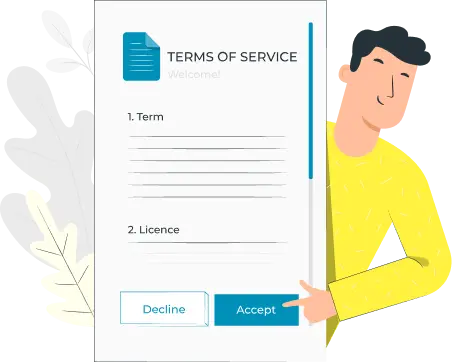In today's competitive job market, attracting and retaining top talent is more critical than ever. One of the most effective strategies for achieving this is through a well-designed Total Rewards program. But what exactly does "Total Rewards" mean, and why is it so vital for employers? This glossary article will delve into the concept of Total Rewards, explain its components, and provide insights on how employers can use it to enhance their workforce strategy.
Total Rewards refers to the comprehensive package of benefits, compensation, and opportunities that an employer offers to its employees in exchange for their work. It goes beyond the traditional notions of salary and bonuses to encompass a broader range of offerings that cater to employees' professional and personal needs.
The concept of Total Rewards is rooted in the idea that a motivated and engaged workforce is driven not just by financial incentives but by a holistic mix of rewards that address various aspects of an employee's experience within the organization.
The Total Rewards approach is designed to attract, retain, and motivate employees by aligning their needs and aspirations with the organization’s goals. It recognizes that each employee values different aspects of their employment differently, and thus, a diverse mix of rewards can appeal to a broader range of talent.
This is the most straightforward component of Total Rewards and includes all forms of direct financial compensation such as base salary, bonuses, commissions, and overtime pay. Compensation is often the primary motivator for employees, but it should be competitive and reflective of the market standards to ensure it attracts the right talent.
Beyond salary, benefits are a significant part of Total Rewards. This includes health insurance, retirement plans, paid time off, and other types of financial protection and services that support employees' well-being. A robust benefits package can enhance job satisfaction and loyalty, as it provides security and peace of mind for employees and their families.
This component addresses the non-financial aspects of an employee’s life that contribute to job satisfaction. Flexible work arrangements, remote work options, wellness programs, and paid time off for personal or family matters are examples of work-life balance initiatives. These programs are essential in fostering a healthy work environment and reducing employee burnout.
Recognizing and rewarding employees for their achievements is a critical part of Total Rewards. This can include formal recognition programs, performance bonuses, promotions, and non-monetary rewards such as awards or public acknowledgment. Effective performance management systems that are transparent and fair can drive employee engagement and productivity.
Employees value opportunities for growth and development within an organization. This component includes professional development programs, training opportunities, mentorship, tuition reimbursement, and clear career progression paths. By investing in employees' futures, organizations can foster a culture of continuous learning and loyalty.
In a competitive job market, a compelling Total Rewards package can differentiate your organization from others. Prospective employees are more likely to be drawn to companies that offer a well-rounded and attractive package that goes beyond just a paycheck.
Employees who feel valued and recognized for their contributions are more likely to be engaged and remain with the company. Total Rewards that address various aspects of employee needs can reduce turnover and foster a more committed workforce.
A well-structured Total Rewards program can align employee goals with organizational objectives. By recognizing and rewarding high performance, employers can motivate their teams to achieve better results and drive business success.
Organizations known for their comprehensive Total Rewards programs often enjoy a positive reputation in the job market. This not only helps in attracting new talent but also in maintaining a satisfied and motivated workforce, which further strengthens the employer brand.
Understanding what your employees value most is the first step in designing an effective Total Rewards program. Conduct surveys, hold focus groups, and analyze workforce demographics to gather insights into employee preferences and needs.
To ensure your Total Rewards package is competitive, benchmark your offerings against those of similar organizations in your industry. This will help you understand where you stand and identify areas for improvement.
A well-designed Total Rewards program is only effective if employees are aware of and understand the benefits available to them. Clear communication through multiple channels—such as intranets, newsletters, and town hall meetings—can help ensure employees are informed and can take full advantage of the offerings.
The needs of your workforce and market conditions change over time. Regularly reviewing and updating your Total Rewards strategy is crucial to ensure it remains relevant and effective. Solicit employee feedback and stay informed about industry trends to make necessary adjustments.
Total Rewards is more than just a buzzword; it is a strategic approach to employee engagement and retention that can significantly impact an organization’s success. By understanding and implementing a comprehensive Total Rewards strategy, employers can not only attract and retain top talent but also create a motivated and high-performing workforce.
Disclaimer: This article and all information in it is provided for general informational purposes only. It does not, and is not intended to, constitute legal or tax advice. You should consult with a qualified legal or tax professional for advice regarding any legal or tax matter and prior to acting (or refraining from acting) on the basis of any information provided on this website.
Choose Glints TalentHub as your partner in Southeast Asia.
Building your Team in
Southeast Asia with Glints' EOR Service

Rapid
Team Setup
Launch Southeast Asian operations in a week for a seamless start

Full Suite of HR Offerings
Launch Southeast Asian operations in a week for a seamless start

Guaranteed 100% Compliance
Ensure total HR and legal compliance with expert local guidance

Dedicated & Immediate Support
Get quick, dedicated HR support within 24 hours